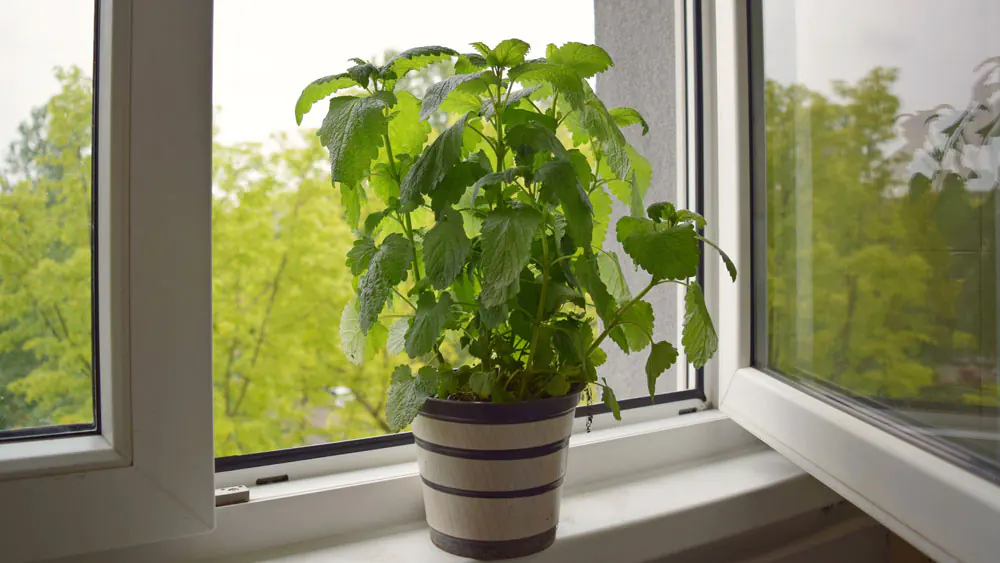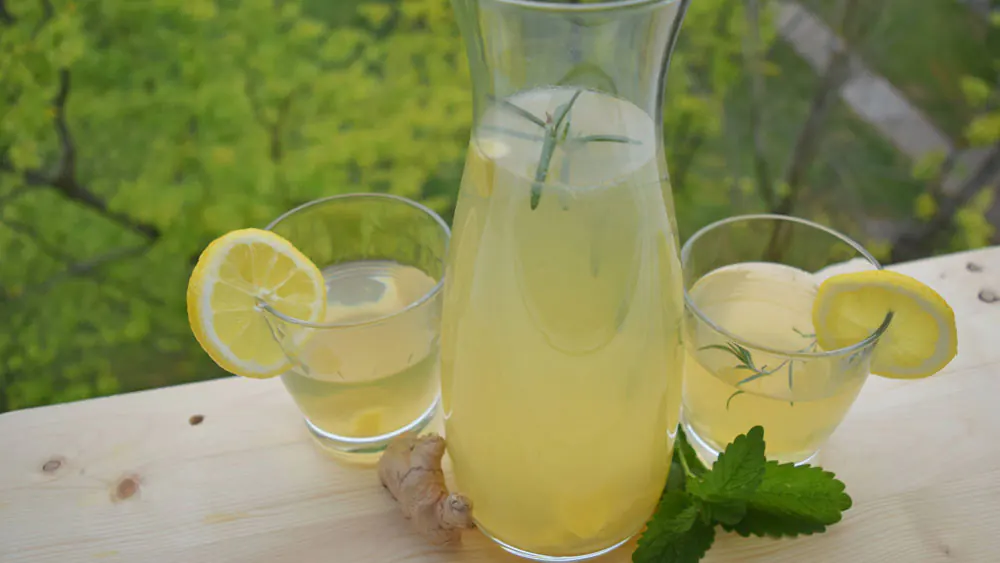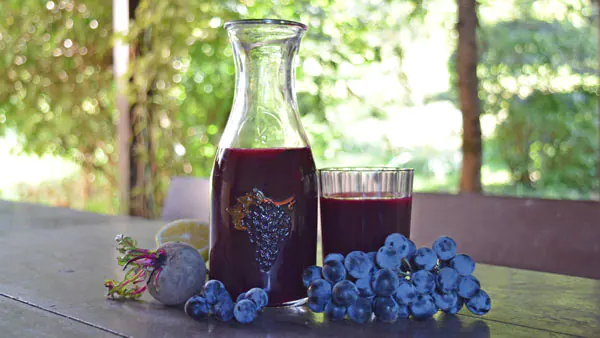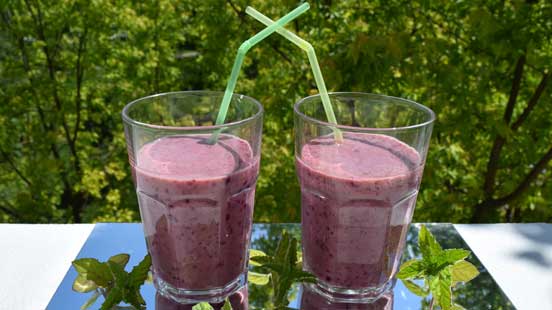Preparation time: 35 minutes ❀ Difficulty of preparation: Simple
Ingredients:
| 50 g fresh lemon balm |
| 2 l water |
| 1 lemon |
| 1 tbsp honey (optional) |
| 30 g ginger root (optional) |
| 1 sprig rosemary (optional) |
Preparation:
- Heat the water in the pot until it boils, then turn off the heat. Soak the lemon balm in water, cover with a lid, and let stand for about 30 minutes.
- After that, strain the water with the lemon balm into a jug and add the squeezed lemon juice. If you have an organic bio lemon, you can cut part of the lemon into slices and add it with the peel. Just wash the lemon well before that.
- Optionally, peel the ginger root, chop it into small pieces, and add it to the lemonade. You can also add a sprig of fresh rosemary to the jug. Besides enriching the taste of lemonade, rosemary will have a decorative effect.
- If you wish, sweeten the drink with honey, agave syrup, or another healthy sweetener.
- Cool the lemonade in the fridge and enjoy the refreshing drink.
Lemonade is best consumed within 2–3 days. Bearing in mind that the recommendation for daily fluid intake is about 8 cups (2l) of water, lemon balm lemonade can be enough for all-day hydration. It is known that sufficient fluid intake has a positive effect on our health as it increases our concentration, energy, and mood. However, it is not uncommon to neglect the importance of drinking enough water, so delicious lemon balm lemonade can serve as motivation to take a break and recharge. When going out, you can take lemonade in a bottle and enjoy the refreshing drink wherever you are.
Lemon balm is an aromatic herb that comes from the same family as mint. It is a bushy plant that spreads quickly, providing an abundance of leaves with a pleasant, lemon-like taste and smell, which is why it is also known as lemon grass. According to Healthline, lemon balm is credited with numerous medicinal properties. Most notable is its beneficial effect on improving mood and cognitive functions, alleviating stress, anxiety, and insomnia, as well as its positive effect on the digestive system. In addition to making tea, aromatic lemon balm leaves can also be used as a spice in salads, sauces, soups, and other dishes.

Lemon balm is also known as Melissa (lat. Melissa officinalis), which in Greek means "bee". I found some interesting information about the lemon balm in the book "Houseplants" by Cynthia Wickham. The author writes how some believe that the bee never leaves the garden where the lemon balm thrives, and at a time when honey was the only sweetener, this herb was invaluable. It is believed to relieve pain and reduce tension, and people who wanted to be loved wore it as an amulet.
The advantage of growing lemon balm on a balcony or windowsill is the simple harvesting when cooking or preparing refreshing drinks.
As the name of the book suggests, lemon balm is suitable for growing at home in containers or jars. It is a very resistant plant and can be easily grown on the balcony or even on the windowsill. The bushy plant on my windowsill was transplanted from the garden, but it can also be grown relatively easily from seed. Keep in mind that lemon balm spreads quickly, so it is best to keep it away from other plants. The advantage of growing lemon balm on a balcony or windowsill is the simple harvesting when cooking or preparing refreshing drinks. Moreover, frequent leaf picking is desirable as it promotes plant growth.
Lemon balm lemonade is a simple drink for refreshment and relaxation. The preparation is really simple as well as a real pleasure when the pleasant lemon balm aroma takes over the kitchen. If you don't already have this aromatic plant in your garden, maybe the recipe will inspire you to grow one yourself, regardless of space possibilities. Enjoy warm days with a refreshing lemon balm lemonade!



